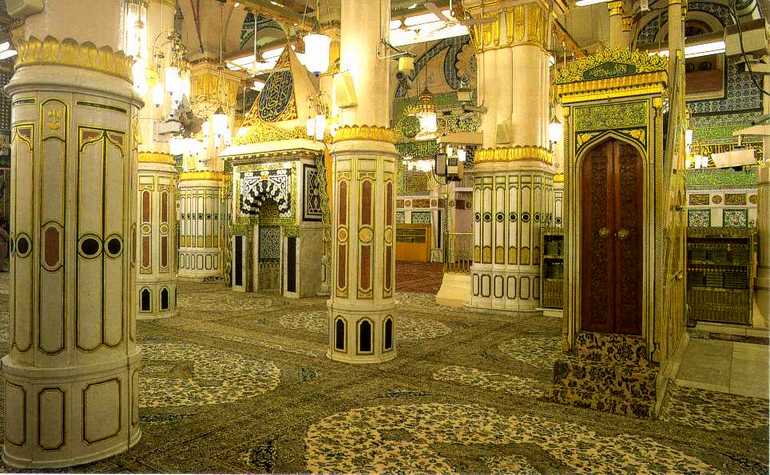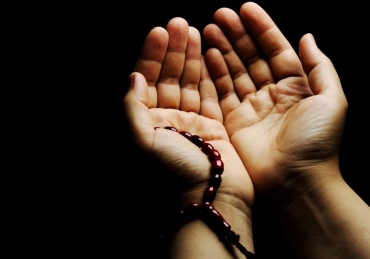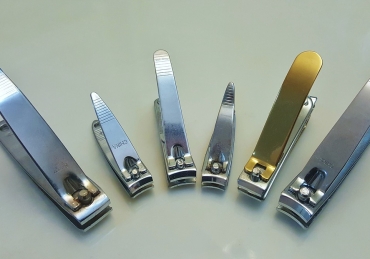Using pulpit for sermons
Question
Are there any narrations that affirm that the pulpit was used in the Prophetic era to deliver sermons other than the Friday and Eid sermons?
بسم الله الرحمن الرحیم
Answer
The Prophet ﷺ would use the pulpit to deliver the Friday sermon as well as to deliver sermons on other occasions. The following narrations illustrate this:
- Anas ibn Mālik (d. 93/711-2) (may Allah be pleased with him) narrates that the Prophet ﷺ would lead them in Ṣalāh and then he mounted the pulpit and said: “In Ṣalāh and Rukūʿ, verily I see you from behind as I see you now” (Ṣaḥīḥ al-Bukhārī, 419).
- On one occasion, the Prophet ﷺ mounted the pulpit warning the people against stipulating conditions in transactions that were contrary to Qurʾānic teachings (Ṣaḥīḥ al-Bukhārī, 456).
- The Prophet ﷺ in his final days before he passed away delivered a short sermon on the pulpit highlighting the virtues of Abū Bakr al-Ṣiddīq (d. 13/634) (may Allah be pleased with him) (Ṣaḥīḥ al-Bukhārī, 467).
- Anas ibn Mālik (d. 93/711-2) (may Allah be pleased with him) narrates that on one occasion the Prophet ﷺ performed Ẓuhr Ṣalāh, mounted the pulpit and delivered a discourse regarding the final hour (Ṣaḥīḥ al-Bukhārī, 540).
- ʿUqbah ibn ʿĀmir (d. 58/677-8) (may Allah be pleased with him) narrates that after performing Janāzah Ṣalāh (or making duʿāʾ) on the martyrs of Uḥud, the Prophet ﷺ proceeded to the pulpit and delivered a short discourse regarding the treasures of the world (Ṣaḥīḥ al-Bukhārī, 1344).
- ʿAmr ibn Akhṭab (n.d.) (may Allah be pleased with him) narrates that on one occasion, the Prophet ﷺ led Fajr Ṣalāh and thereafter mounted the pulpit and delivered a sermon until Ẓuhr Ṣalāh. Then he descended and led Ẓuhr Ṣalāh. Then he mounted the pulpit and delivered a sermon until ʿAṣr Ṣalāh. Then he descended, led ʿAṣr Ṣalāh and then mounted the pulpit and delivered a sermon until sunset (Ṣaḥīḥ Muslim, 2892).
- On one occasion, the Prophet ﷺ performed Ṣalāh and thereafter sat on the pulpit and shared the detailed account of Tamīm al-Dārī’s (d. 40/660-1) (may Allah be pleased with him) encounter with Dajjāl (Ṣaḥīḥ Muslim, 2262).
- ʿĀʾishah (d. 58/678) (may Allah be pleased with her) narrates that when my vindication was revealed, the Prophet ﷺ mounted the pulpit and mentioned that, and recited the Qurʾān. Then when he came down from the pulpit he ordered regarding the two men and the woman, and they were given the prescribed punishment (Sunan al-Tirmidhī, 3181; Sunan Abū Dāwūd, 4474).
- After the demise of the Prophet ﷺ, Abū Bakr al-Ṣiddīq (d. 13/634) (may Allah be pleased with him) performed Ẓuhr Ṣalāh and mounted the pulpit and delivered a discourse (Ṣaḥīḥ al-Bukhārī, 4240).
- ʿUmar ibn ʿAbd al-ʿAzīz (d. 101/720) is reported to have been sat on a pulpit before ʿAṣr Ṣalāh (Sunan Abū Dāwūd, 394; Sunan al-Dāraquṭnī, 986).
Allah knows best
Yusuf Shabbir
25 Rajab 1437 / 2 May 2016







